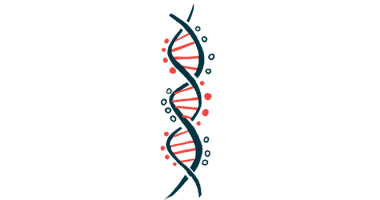Common Autism Symptoms in PWS Linked to Impaired Social Functioning

Impaired social responsiveness, an indicator of autism spectrum disorder (ASD), is prevalent among adults with Prader-Willi syndrome (PWS), and is associated with worse social functioning, according to a recent study.
“Our results suggest that evaluating difficulties in social skills is fundamental for the global assessment of functionality,” the researchers wrote.
The study, “Social Responsiveness and Psychosocial Functioning in Adults with Prader–Willi Syndrome,” was published in the Journal of Clinical Medicine.
PWS is accompanied by a range of symptoms that overlap with ASD, including impaired social and cognitive abilities. Moreover, a significantly higher proportion of PWS patients meet the criteria for an ASD diagnosis than the general population.
PWS patients diagnosed with ASD have been found to have lower intelligence quotients, and impaired social and verbal abilities, which can lead to overall difficulties in social functioning.
A team in Spain evaluated ASD symptoms and their potential effects on social functioning in 26 adults with PWS.
All of the participants had intellectual disability, which was classified as mild in 16 patients and moderate or severe in the remaining 10.
PWS is caused by a loss of or defects in genes in a region of chromosome 15 called the PWS locus. The condition usually arises when the paternally-inherited chromosome region is deleted, but can also occur when a child inherits two inactive copies of the chromosome from their mother — called uniparental disomy — instead of one active paternal copy and an inactive maternal copy. Less often, PWS arises when the paternally-inherited chromosome is present, but silenced, which is called an imprinting defect.
Among the study group, 65.4% of participants had a deletion, 23.1% had uniparental disomy, and 11.5% had imprinting defects.
The Social Responsiveness Scale (SRS) was used to evaluate ASD symptoms. The scale covers five major domains: social awareness, social cognition, social communication, social motivation, and autistic mannerisms.
Social responsiveness was determined to be impaired, with SRS scores of at least 60, in 20 participants (76.9%), of which 5 (19.2%) were considered substantial impairments and 15 (57.7%) were considered severe.
The researchers found that a greater proportion of those patients with uniparental disomy had impaired social responsiveness, similar to previous findings. Participants with moderate or severe intellectual disability also had a greater incidence of SRS impairments.
Overall, the findings “suggest that impaired social responsiveness related to ASD symptomatology is common in adults with PWS,” the researchers wrote.
Patients’ social functioning was analyzed using the Personal and Social Performance Scale (PSP), a clinician-rated scale that evaluates four main areas of social function: socially useful activities (e.g. work, study), personal and social relationships, self-care, and disturbing or aggressive behaviors.
Half of the participants were considered to have manifest difficulties in social functioning (12 people), 33.3% (eight participants) had mild difficulties, 12.5% (three patients) severe difficulties, and the one remaining patient was considered to have excellent overall functioning.
Participants with impaired social responsiveness had significantly worse overall PSP scores, and in all PSP areas except disturbing and aggressive behaviors.
A nearly significant association was observed between the social awareness domain of the SRS, which refers to an individual’s ability to perceive social cues, and the self-care area of the PSP.
Scores in the social cognition domain of the SRS, which encompasses the ability to interpret social cues after they have been perceived, correlated significantly with worse social functioning in the social activities and personal relationships PSP areas.
According to the team, the findings suggest that “greater difficulties in social cognition are intertwined with difficulties in social activities and relationships that would hinder the overall ability of people with PWS to function socially.”
While the study is limited by a small sample size, the results overall suggest that ASD symptoms are related to impaired social functioning in adults with PWS, the research team noted.
“In people with PWS, early detection of symptoms of autism might enable specific interventions to prevent the exacerbation of more specific symptoms of ASD and to improve global functioning,” they wrote.








